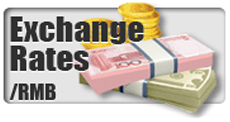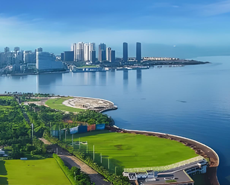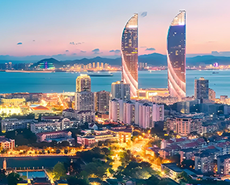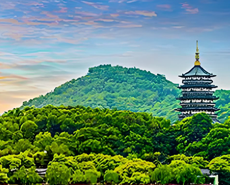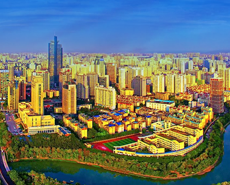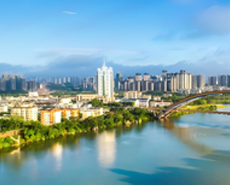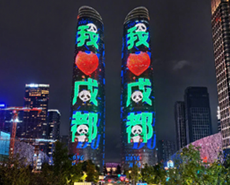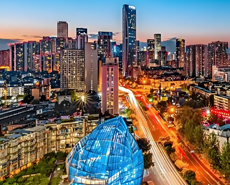
Demand for baddeleyite concentrate increase obviously in 2018
----Interview with Natalya Zorina
Head of Sales for Baddeleyite concentrate
EuroChem
Head of Sales for Baddeleyite concentrate
EuroChem
EuroChem is the only fertilizer company in the world to combine fully-owned mining, natural gas, production, logistics and global distribution assets. The Group is currently developing two sizeable potash deposits in Russia with its VolgaKaliy and Usolskiy Potash greenfield projects. Headquartered in Zug, Switzerland, the Group operates production facilities in Belgium, Lithuania, China, Kazakhstan and Russia.
Asian Metal: Hi Miss Zorina, thank you for taking our interview. Could you please give us a background on your company?
Zorina: Hello, I'm Natalya Zorina, Head of Sales baddeleyite concentrate in EuroChem. Our company is a leading global fertilizer company, producing primarily nitrogen and phosphate fertilizers, as well as certain organic synthesis products like iron ore and raw minerals like apatite and baddeleyite. The Group is vertically integrated with activities spanning from mining and hydrocarbons extraction to fertilizer production, logistics, and distribution. EuroChem is currently developing two sizeable potash deposits in Russia with its VolgaKaliy and Usolskiy Potash greenfield projects. Headquartered in Zug, Switzerland, the Group operates production facilities in Belgium, Lithuania, China, Kazakhstan and Russia and employs more than 25,000 people globally.
Asian Metal: Thanks for the introduction. Would you please give a brief introduction about Russian zirconium market? I think that it will be interested for companies in other countries.
Zorina: Russia has significant resources of zirconium - approximately 12 million tonnes, according to this Russia takes the forth place in the world. In the meantime, almost 100% of Russian zirconium is produced by Kovdorsky GOK in the form of baddeleyite (ZrO2), which should be differentiated to some extent from chemical or fused zirconia that are manufactured by various methods from sedimentaries like heavy sands.
Baddeleyite, the only significant natural form of zirconia presently produced in the world, occurs in a very limited number of geological environments. Its occurrence in South Africa and Russia has led to commercial production in these countries. However, production in South Africa ceased in 2002, leaving Russia as the sole source of supply. Today Kovdorsky GOK is the only enterprise in the world producing baddeleyite concentrate.
Russia is the third world producer of metal zirconium and its alloys, it occupies 17% of the world market. Zirconium processing enterprises are situated in Moscow, St. Petersburg, Udmurtia, Perm, Sverdlovsk and some other regions with range of products including metal zirconium, zirconium-based alloys, ceramics, refractories, etc.
Export of Russian baddeleyite accounts to 90-95% of total production as domestic demand for zirconium raw materials is rather low. On the other hand, the domestic needs for other than ZrO2 forms of zirconium were satisfied exclusively by import, mainly from Ukraine. In the current political climate, this source of raw materials is questionable, and its volume does not allow Russia to meet all the needs for this material.


Asian Metal: As you mentioned above, almost 100% of Russian zirconium is produced by Kovdorsky GOK in your group, what is the current situation about the mine?
Zorina: The baddeleyite–apatite–magnetite deposit at Kovdor in the Kola Peninsula is the only world deposit with economic volumes of baddeleyite, produced as a by-product of apatite flotation. Kovdorsky GOK has been producing these minerals from complex ores for almost 25 years, but for the majority of this period has remained virtually unknown on the world market.
The geology is composed of forsterite, apatite and magnetite ores with baddeleyite dispersed through magnetite and apatite bearing zones at ~0.15% ZrO2. It is expected that baddeleyite output will continue for a further 20-30 years. The mine operates around the year despite harsh winters, using feedstock from the open pit.
In 2017, the marketable output of baddeleyite concentrate was 7,200 tonnes which is Kovdorsky's minimum output capacity level for the recent years. The concentrate was exported to Japan, China, Europe, and North America. Domestic market is still under development, only a small amount of Kovdor's baddeleyite is sold domestically to fused refractory material producers.


Asian Metal: What are features and advantages of your baddeleyite?
Zorina: Russian baddeleyite is similar in purity to the highest commercial grade formerly produced in South Africa's Phalaborwa deposit, but has a lower radioactivity content. With commercial sources of natural zirconia being very limited, 80–90% of the zirconia used for industrial applications is nowadays manufactured from zircon sands. Unlike zircon, baddeleyite is not used as opacifier in ceramics except in some niche applications.
Baddeleyite has been the traditional source of raw material for refractories and it is still preferable for this application due to its unaffected crystal structure, but with the rather limited production of this mineral, fused zirconia derived from zircon has now become the primary source of supply.
Baddeleyite traditional consumers always preferred baddeleyite over fused zirconia because it reacted easier and gave a better product. This is largely due to the fact that fused zirconia has been produced at a high temperature [electrofusion] while baddeleyite is a natural product with unaffected tough crystal structure.

Asian Metal: What are the main applications of baddeleyite? What are the prospects?
Zorina: The commercial usage of baddeleyite is similar to that of fused zirconia which is widely applied for production of refractories, abrasives, advanced ceramics, electronics but unlike fused zirconia or zircon baddeleyite is not used as opacifier in ceramics except for some niche applications. However, some producers used to prefer pigment grades of baddeleyite to make lower-cost blue/ yellow ceramic colours.
The manufacture of refractories is the largest single industrial application of baddeleyite. Baddeleyite which is a natural zirconia has refractory properties similar to those of zircon, but because of its higher melting point can be used in refractories for which the high temperature performance requirements are beyond the capabilities of zircon.
Presently we produce only 2 grades with min 98.0 and 98.5% ZrO2. They both are well used in production of refractories, abrasives, technical ceramics and electronics.
Our customers constantly conduct R&D on new implementation of the product but the details are rather confidential.

